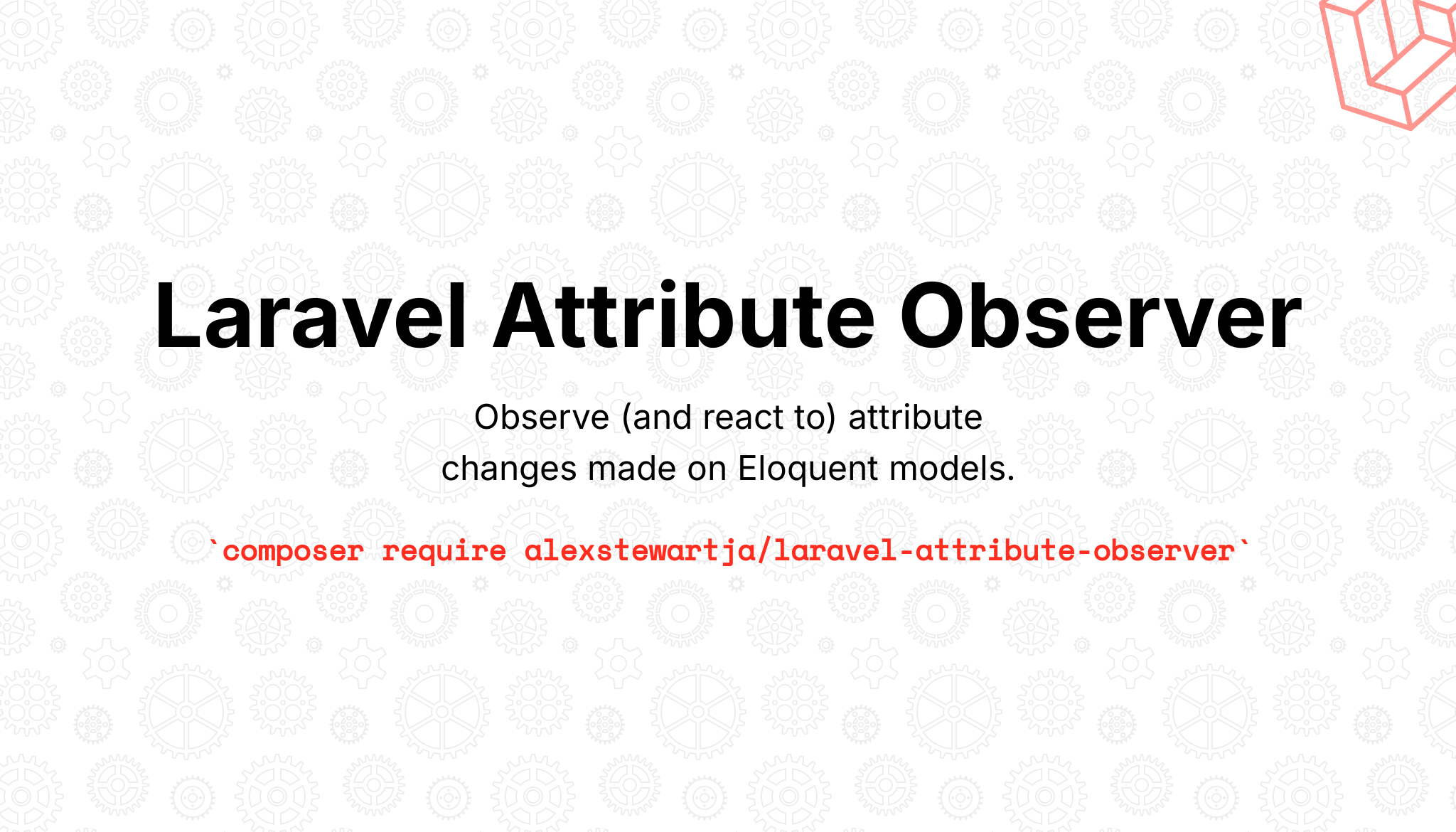Laravel Attribute Observer
Requirements
- PHP: 7.4+
- Laravel: 7+
Installation
You can install the package via composer:
composer require alexstewartja/laravel-attribute-observer
Configuration
Publish the config file (config/attribute-observer.php) with:
php artisan vendor:publish --provider="AlexStewartJA\LaravelAttributeObserver\LaravelAttributeObserverServiceProvider"
This is the default content of the published config file:
return [
/*
|--------------------------------------------------------------------------
| Attribute Observers
|--------------------------------------------------------------------------
|
| Here you may configure all desired Models and their respective Attribute
| Observers. For example:
|
| 'observers' => [
| \App\Models\Order::class => [
| \App\AttributeObservers\OrderStatusObserver::class,
| ],
| ]
|
*/
'observers' => [
// Define your model & attribute observers here...
]
];
Populate the observers array with your desired Model => Attribute Observer mappings.
Usage
Attribute Observers
The make:laravel-attribute-observer Artisan command is the easiest way to create a new attribute observer class:
php artisan make:laravel-attribute-observer OrderStatusObserver --model=Order
This command will place the new attribute observer in your App/AttributeObservers directory. If this directory does not exist, Artisan will create it for you. Your freshly generated attribute observer will look like the following:
<?php
namespace App\AttributeObservers;
use App\Models\Order;
class OrderStatusObserver
{
/**
* Handle changes to the "id" field of Order on "created" events.
*
* @param \App\Models\Order $order
* @param mixed $newValue The current value of the field
* @param mixed $oldValue The previous value of the field
* @return void
*/
public function onIdCreated(Order $order, mixed $newValue, mixed $oldValue)
{
//
}
}
You may then modify the code to match your business logic, for example:
<?php
namespace App\AttributeObservers;
use App\Events\OrderStatusChanged;
use App\Models\Order;
class OrderStatusObserver
{
/**
* Handle changes to the "status" field of Order on "saved" events.
*
* @param \App\Models\Order $order
* @param mixed $newValue The current value of the field
* @param mixed $oldValue The previous value of the field
* @return void
*/
public function onStatusSaved(Order $order, mixed $newValue, mixed $oldValue)
{
// Dispatch an event that sends an order update email to the customer
OrderStatusChanged::dispatch($order);
}
}
Attribute Observer methods are always supplied with the model instance, the new attribute value and the previous attribute value, in that order.
Events
You may observe all the typical CRUD events dispatched by Eloquent models during their lifecycles. Supported events are: creating, created, updating, updated, saving, saved, deleting, deleted.
The naming convention to follow when defining attribute observer methods is: on|AttributeName|Event
So, let's say we want to check a user's email against a global spam/vanity mail list each time they attempt to update it, we would implement that logic in an attribute observer method called onEmailUpdating.
Note that the attribute name must be in PascalCase and the event name must be Capitalized.
Testing
composer test
Changelog
Please see CHANGELOG for more information on what has changed recently.
Contributing
Please see CONTRIBUTING for details.
Security Vulnerabilities
Please review our security policy on how to report security vulnerabilities.
Credits
License
The MIT License (MIT). Please see License File for more information.
Donations
I maintain this package in my spare time. If it's beneficial to you, consider donating or buying me a coffee to keep it improving.








